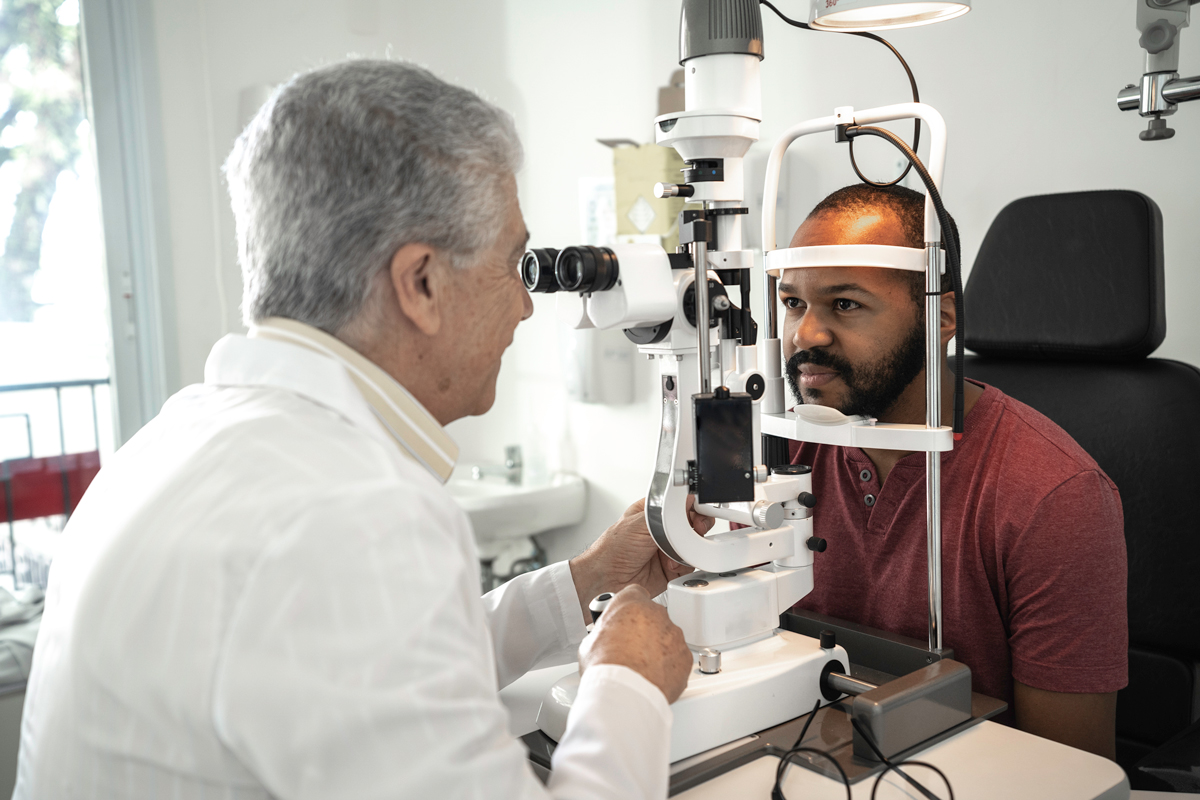 |
|
Communicating and understanding to patients the factors that impact their lives by linking treatment plans to patient goals facilitates activation and can lead to improved treatment outcomes. Photo: Getty Images. Click image to enlarge. |
Glaucoma patients often feel a sense of powerlessness to bring about improvements in their condition and quality of life. To better understand what could increase patients’ feelings of control, researchers from Columbia University and New York University recently investigated the association of psychosocial factors with health self-management behaviors and beliefs among patients with open-angle glaucoma.
The researchers identified modifiable behavioral factors that could increase patients’ self-perceived ability and confidence to manage their own eye care. This, they explained in their paper for Ophthalmology Glaucoma, is known in psychology as activation and is defined as “having the knowledge, skill, and confidence to engage in activities that maintain or enhance functioning, reflects patients’ willingness and ability to manage his/her own health care.” Patients with lower levels of activation, the paper explains, “are less likely to understand their diagnosis, more likely to delay care and be less adherent with their medications and care protocols.”
Another importance psychological concept relevant to this study is known as locus of control (LOC), described in the paper as the patient’s “belief of whether control of one’s behavior is internal or through external factors such as doctors, powerful others or chance.”
A total of 202 patients with mild, moderate or advanced bilateral disease were asked to fill out a series of patient surveys, including the NEI Vision Function Questionnaire-8 (NEI-VFQ), the Multidimensional Health Locus of Control (MHLC), the Perceived Medical Condition Self-Management Scale-4 (PMCSMS), the Patient Health Questionnaire-9 (PHQ) and the Patient Activation Measure-13 (PAM), as well as a determinants of health questionnaire.
Locus of control (MHLC), level of depression (PHQ) and self-rated functional vision (NEI-VFQ) were associated with patient behaviors, attitudes and beliefs needed for health self-management (activation, assessed by the PAM) and may be important determinants of adherence behaviors, the authors noted. Targeting change in patients’ care beliefs and behaviors may improve activation and treatment outcomes.
Locus of control was significantly associated with activation. Individuals with internal locus of control believe they are able to control their health outcomes while those with external locus of control do not. Doctors would do well to encourage an internal locus of control in their patients, the authors advise.
“When patients have knowledge and confidence in their own ability, behavioral changes such as increased information-seeking and active participation in their own care may facilitate reduction in vision loss from glaucoma,” the researchers wrote. “Taking medications properly and following treatment instructions is dependent on patients’ understanding of their glaucoma diagnosis, its treatment and their own ability to manage their care, all factors that reflect activation. Patients’ knowledge mediates their activation and positive health behaviors.”
The authors stressed that effective doctor-patient communication is essential for improving activation. Patients rely on their eyecare provider for information and help to manage their glaucoma, “but if patient education is inadequate, they will not have the necessary knowledge to provide appropriate glaucoma self-care,” the authors noted.
Additionally, a previous study found that patients’ adherence to care regimens decreases as the number of medications they have to manage increases, emphasizing the need for patients to understand their glaucoma and be actively involved in their own eye care.
“Our study underscores the importance of identifying modifiable behavioral attributes to improve patients’ activation levels and lead to increased involvement with their own care,” the authors concluded. The recommend the following actions:
- Communicating an understanding of each patient’s perspective and factors that impact their lives by linking treatment plans to patient goals
- Educating patients about their condition and the need treatment adherence and for regular follow-up exams.
- Identifying underlying patient beliefs and behaviors needed for their appropriate involvement in their own care.
Morse AR, Hark LA, Gorrochurn P, et al. Association of psychosocial factors with activation among patients with glaucoma. January 30, 2024. [Epub ahead of print]. |

